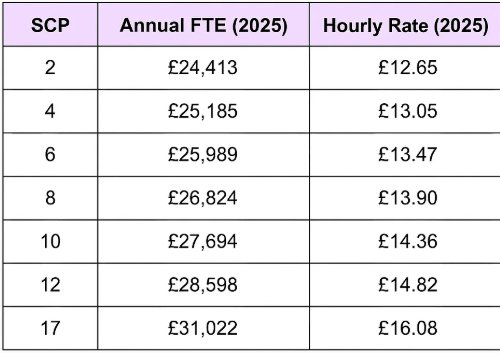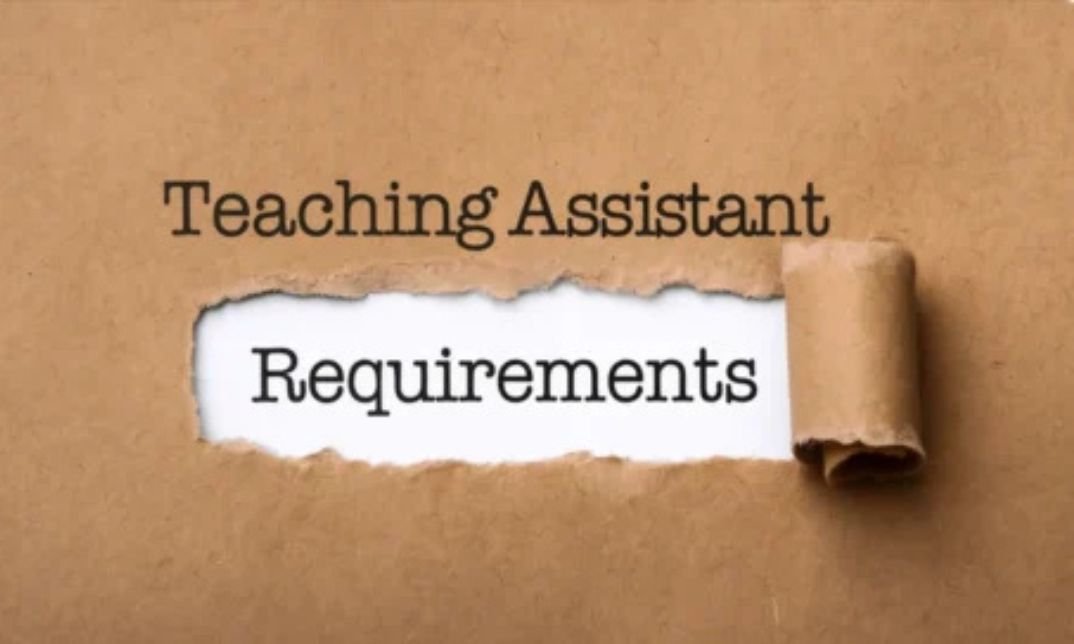No products in the cart.
If you’ve been wondering what is the salary for a teaching assistant, now is the perfect time to find out. It’s also a great time to start or continue your journey in this rewarding career. From April 2025, the starting full-time equivalent (FTE) salary for a Teaching Assistant is £24,413 (Spinal Column Point 2, or SCP2).
In most cases, TAs make between £24,000 and £27,500. Experienced or senior teaching assistants can make £30,000 or more, depending on the school and duties. However, many TAs are only employed for a limited period of time. Therefore, you’re paid for about 39 weeks instead of the whole year. As a result, your annual take-home pay typically ranges from £18,000 to £22,000.
Let’s break down these figures further to understand what the salary for a teaching assistant in 2025 is, including how much you can earn based on your experience, contract type, and location.
How Much Do Teaching Assistants Earn per Hour?
Now, let’s look at the TA hourly rate UK!
In 2025, a Teaching Assistant on SCP2 earns around £12.65 per hour. Those on higher SCP levels can earn £13 to £16 per hour. Senior or higher-level assistants can make £20 or more per hour. It’s also important to remember that TA salaries are often spread evenly across 12 months. Even though you work term-time only, this helps you receive a steady monthly income throughout the year.
Why Teaching Assistant Pay Varies in the UK
Teaching Assistant pay can vary across the UK for several reasons.
- Region and local council: London and the surrounding areas offer extra “weighting” to balance higher living costs.
- Contract type: Full-year contracts pay more than term-time-only ones.
- Spinal Column Point (SCP): Your salary depends on where you sit on the NJC pay scale.
- Responsibilities: TAs who support children with special educational needs (SEN) or behaviour challenges often earn more.
Teaching Assistant Pay Scales UK 2025 (NJC)
The pay for TAs falls on the NJC (National Joint Council) scale. The latest pay agreement confirmed a 3.2% increase on all pay points, effective from April 1, 2025. To give you an idea of the progression, here is an example of the lower NJC Spinal Column Points (SCPs) for 2025 (FTE annual salary):

The figure you’ll see most often is the Full-Time Equivalent (FTE) salary. This is what you would earn if you worked 37 hours a week, all year round (52 weeks).
How Much You’ll Actually Take Home on a Term-Time Contract
If your FTE salary is £24,413, but you only work term-time, your actual annual pay will be around £18,000 after pro-rating. This difference happens because you’re paid only for the weeks you work. However, your total salary is usually divided into 12 monthly payments, so your income stays consistent throughout the year.
Teaching Assistant Roles and What They Do
So, what does a Teaching Assistant actually do? A Teaching Assistant (TA) supports the teacher and helps students learn effectively. Besides, they work with small groups and support individual pupils. They also help create a calm and positive learning environment.
Daily tasks often include:
- Preparing lessons and classroom materials
- Supporting pupils with reading, writing, or maths
- Helping manage classroom behaviour
- Supporting children with special educational needs (SEN)
Teaching Assistant Requirements:
To work as a teaching assistant in the UK, most schools ask for a few key things:
- GCSEs in English and Maths (grade 4/C or above) – so you can help pupils with reading, writing, and numbers.
- Safeguarding training – to understand how to keep children safe and follow school safety rules.
- A DBS check – a background check that shows you’re safe to work with children.
Some schools also prefer you to have a Level 2 or Level 3 Teaching Assistant qualification, but it’s not always required. Most importantly, you need to be patient, caring, and good at working with others — those are the qualities that make a great teaching assistant.
Common Teaching Assistant Roles Include:
- General Classroom TA
- SEN (Special Educational Needs) TA
- Intervention TA
- Early Years (EYFS) TA
Higher Level Teaching Assistants (HLTAs)
You might be wondering, ‘What is a higher level teaching assistant?’ A Higher Level Teaching Assistant (HLTA) assumes more advanced responsibilities. They can lead small group activities and cover classes when teachers are absent. Typically, an HLTA income in the UK is between £27,000 and £30,000 (FTE). This will depend on your experience, training, and location.
Can a Teaching Assistant Become a Teacher Without a Degree?

Yes, it’s possible, but it usually requires a formal training route. Many TAs progress along the TA to teacher pathway by completing:
- HLTA status
- TA-to-teacher apprenticeships
- School Direct programmes
- PGCE (after gaining a degree)
Experience as a TA helps a lot because you already understand classroom routines, lesson support, and student needs.
Extras That Add Value to Your Salary
Even if base pay isn’t high, the benefits make a real difference. You may receive:
- Pension contributions
- Sick pay and paid leave
- Extra pay for SEN work, supervision, or after-school clubs
- Annual pay uplifts, usually applied every April under NJC agreements
These benefits make the role more rewarding. Thus, many schools offer training to help you learn new skills. Extra training can also lead to higher pay and more responsibility. Over time, the combination of salary, benefits, and experience makes being a TA both valuable and satisfying.
How to Increase Your Teaching Assistant Salary
Knowing the salary for a teaching assistant is just the first step. Your starting pay gives an idea, but there are many ways to earn more.
- Gain extra certifications – Courses in SEN support, safeguarding, or other specialist areas can boost your pay and make you more valuable in school.
- Apply for higher SCP levels or HLTA roles – Moving up the NJC pay scale or becoming a Higher Level Teaching Assistant can significantly increase your salary.
- Take on extra responsibilities – Leading small groups, mentoring new staff, or supporting special projects can give you additional allowances and recognition.
- Move to higher-paying areas – Local authorities like London or the South East often pay more, reflecting higher living costs.
By following these steps, your pay can grow steadily over time. Understanding what is the salary for a teaching assistant and how it changes with experience, training, and responsibilities can help you plan a rewarding career. With the right effort, being a TA can become both financially and professionally satisfying.
FAQs About UK Teaching Assistant Pay
Are teaching assistants paid minimum wage?
No. Most Teaching Assistants earn above minimum wage, starting around £12.65 per hour in 2025.
How much are TAs paid per hour?
Hourly pay depends on experience and SCP level. Entry-level TAs earn about £12–£13 per hour; higher-level or HLTA roles can reach £20+.
Do I need qualifications to be a teaching assistant?
Most schools ask for GCSEs in English and Maths, safeguarding training, and a DBS check.
What are the full-time hours for a teaching assistant?
Full-time TAs usually work 32–37.5 hours per week, depending on the school and contract.
Is being a TA a good job?
Yes. It offers stability, purpose, and the chance to help children learn and grow.
How long is a teaching assistant course in the UK?
TA courses can take a few weeks to several months, depending on the level and provider.
Do all schools pay the same?
No. Pay varies depending on your council, region, and contract type.
When do TA pay rises happen?
Most pay rises happen every April, in line with NJC updates.
Bottom Line: What is the Salary for a Teaching Assistant in 2025
In a nutshell, Teaching Assistant pay is improving across the country. From April 2025, salaries will rise by 3.2%, with a starting FTE salary of £24,413. Another point is, your actual income depends on whether you work term-time or all year. However, the role provides purpose, stability, and opportunity for development. With more training, you can advance to HLTA positions or even become a teacher, which would provide you with higher salaries and career opportunities.
For updates, always check your local council’s NJC pay tables for current rates. Remember that being a Teaching Assistant is about more than money. It’s about helping children learn, grow, and succeed every single day.
Ready to get started? Kickstart your career today with our Teaching Assistant Course and open doors to exciting opportunities!




